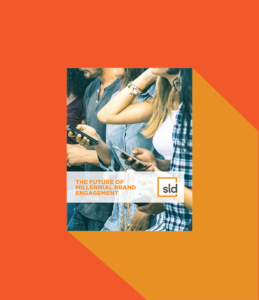Ah, Millennials: the fabled generation that every company is attempting to reach. Expected to surpass baby boomers in size by 2019, Millennials (also known as Generation Y, Me and Peter Pan, to name a few) are reaching their prime spending years. The impact that they will have on the economy has marketers frothing at the mouth as they try to figure out how to attract this large segment of the population. But what do we really know about Millennials? Are they truly the holy grail that brands should be targeting? Let’s take a closer look:
Who are Millennials?
There is no clear consensus on who exactly makes up the Millennial generation, which poses a challenge when trying to market to them. While some say that it is anyone born in the early 1980’s–mid 1990’s, others stretch the timeline from the late 1970’s–2000. The children of baby boomers and Gen X’ers, Millennials have grown up in an increasingly globalized world, filled with technological advancements and improved communication.
It is no secret that Millennials have less wealth and more debt than previous generations, and unemployment or underemployment remain a huge concern. This has led many to delay certain aspects of their adult life, from buying a house to getting married and starting a family. Though they are often defined by stereotypes (both positive and negative ones), Millennials are, in fact, a diverse group of people that are hard to bundle together — especially when trying to sell them something. Also, they hate being called Millennials.
What matters to them?
Millennials’ affection for technology continues to influence how they shop, and with the ability to check reviews and compare prices at their fingertips, a strong brand name is no longer enough to ensure success. Convenience, quality and value is paramount in the decision-making process for Millennials, but so is making a statement. Clothing brands like Supreme and Off-White have benefitted from the fact they are seen as exclusive, unconventional and celebrity endorsed. On the other hand, music streaming services such as Spotify and Tidal, ride-sharing services like Uber and Lyft, and meal kits like Chefs Plate and Hello Fresh are all popular because they make their customers’ lives easier.
Whatever the product or service is, Millennials are more likely to purchase something that they feel is an extension of themselves.
How do you attract them to your brand?
Given the fact that some Millennials are barely out of high school and others have already been in the workforce for a decade, there is a wide range of wants and needs that should be considered when trying to attract this generation to your brand. Luckily, technology now provides the opportunity to move past simple archetypes and personas and allows us to look at things such as behavioral data and predictive analytics. You no longer need to guess who your audience is or what their spending habits are.
Though traditional marketing methods may not yield the same results that they once did, there are plenty of new avenues that can raise the profile of your brand or product. One of the best and cheapest ways to do this is to get your customers to become brand advocates, as Millennials are far more likely to trust their peers over any company. Through engagement, social media contests, rewards programs, etc., you can foster a relationship with your customers that goes beyond monetary transactions.
Millennials also care about supporting brands that they believe in, which means being socially responsible, transparent, authentic and personal. From your brick and mortar store to your website and social media accounts, it is now expected that customers will receive the same service and experience across all channels. Simply put, if a brand doesn’t appear genuine, or if it isn’t easy for a customer to find information, talk to a representative, or make a purchase, Millennials will take their business elsewhere.
While older generations such as baby boomers are currently playing a larger role in consumer spending, the long-term effect that Millennials are set to have on the economy means that businesses need to gain their attention and loyalty now. But this does not mean that you need to solely focus on Millennials and ignore everyone else. The attitudes and interests that are thought to be specific to Millennials are actually common among all generations, and many argue that age-based systems of classification are outdated. By embracing technology, social responsibility and mutually beneficial relationships with your customers, you can position your company for success, both in the present and in the future.
Millennials are entering an important life stage for brands, as this segment of the population is starting to build wealth while driving potential sales growth in financial products and services. Read our White Paper below to learn how marketers can engage Millennials!


